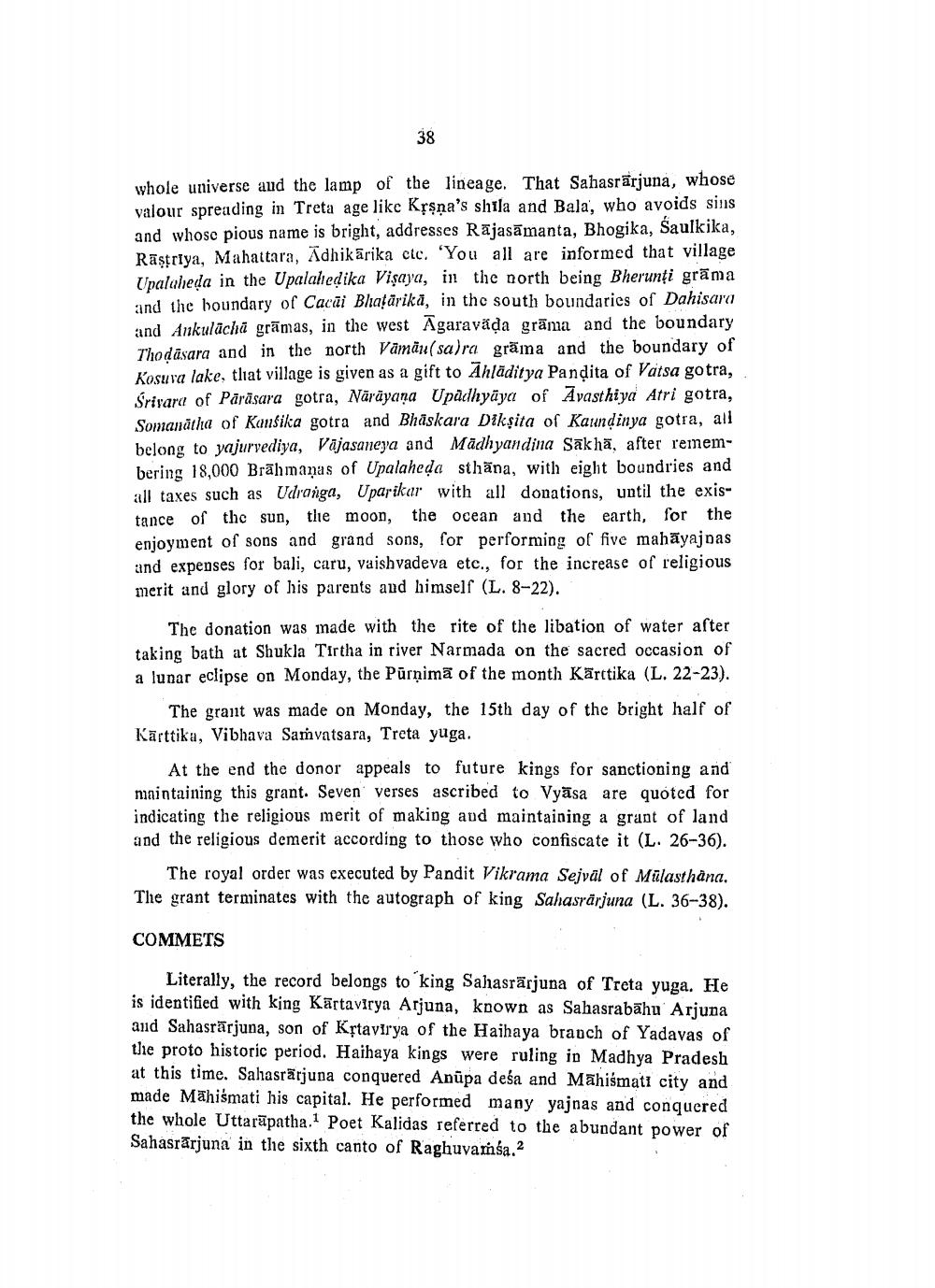________________
38
whole universe and the lamp of the lineage. That Sahasrārjuna, whose valour spreading in Treta age like Krsna's shila and Bala, who avoids sins and whose pious name is bright, addresses Rājasāmanta, Bhogika, Saulkika, Rastriya, Mahattara, Adhikarika ctc. 'You all are informed that village Upalaheda in the Upalalıcdika Visaya, in the north being Bherunți grāma and the boundary of Cacãi Blatārikā, in the south boundaries of Dahisara and Ankulācha grāmas, in the west Agaravāda gräma and the boundary Thodāsara and in the north Vāmäu(sa)ra gräma and the boundary of Kosuva lake, tliat village is given as a gift to Ahlāditya Pandita of Vatsa gotra, Srirara of Pārāsara gotra, Nārāyana Upadhyäya of Avasthiya Atri gotra, Somanātha of Kansika gotra and Bhāskara Dikşita of Kaundinya gotra, ali belong to yajurvediya, Vājasaneya and Madhyandina Sakhā, after remembering 18,000 Brāhmaṇas of Upalaheda sthāna, with eight boundries and all taxes such as Udranga, Uparikar with all donations, until the existance of the sun, the moon, the ocean and the earth, for the enjoyment of sons and grand sons, for performing of five mahāyajdas and expenses for bali, caru, vaishvadeva etc., for the increase of religious merit and glory of his parents and himself (L. 8-22).
The donation was made with the rite of the libation of water after taking bath at Shukla Tirtha in river Narmada on the sacred occasion of a lunar eclipse on Monday, the Purnima of the month Kärttika (L. 22-23).
The grant was made on Monday, the 15th day of the bright half of Kārttika, Vibhava Samvatsara, Treta yuga.
At the end the donor appeals to future kings for sanctioning and maintaining this grant. Seven verses ascribed to Vyāsa are quoted for indicating the religious merit of making and maintaining a grant of land and the religious demerit according to those who confiscate it (L. 26-36).
The royal order was executed by Pandit Vikrama Sejval of Mülasthana. The grant terminates with the autograph of king Sahasrärjuna (L. 36-38).
COMMETS
Literally, the record belongs to 'king Sahasrärjuna of Treta yuga. He is identified with king Kārtavirya Arjuna, known as Sahasrabāhu Arjuna and Sahasrärjuna, son of Kệtavirya of the Haihaya branch of Yadavas of the proto historic period. Haihaya kings were ruling in Madhya Pradesh at this time. Sahasrārjuna conquered Anupa deśa and Mahismati city and made Mahiśmati his capital. He performed many yajnas and conquered the whole Uttarāpatha. Poet Kalidas referred to the abundant power of Sahasrarjuna in the sixth canto of Raghuvamsa.2




